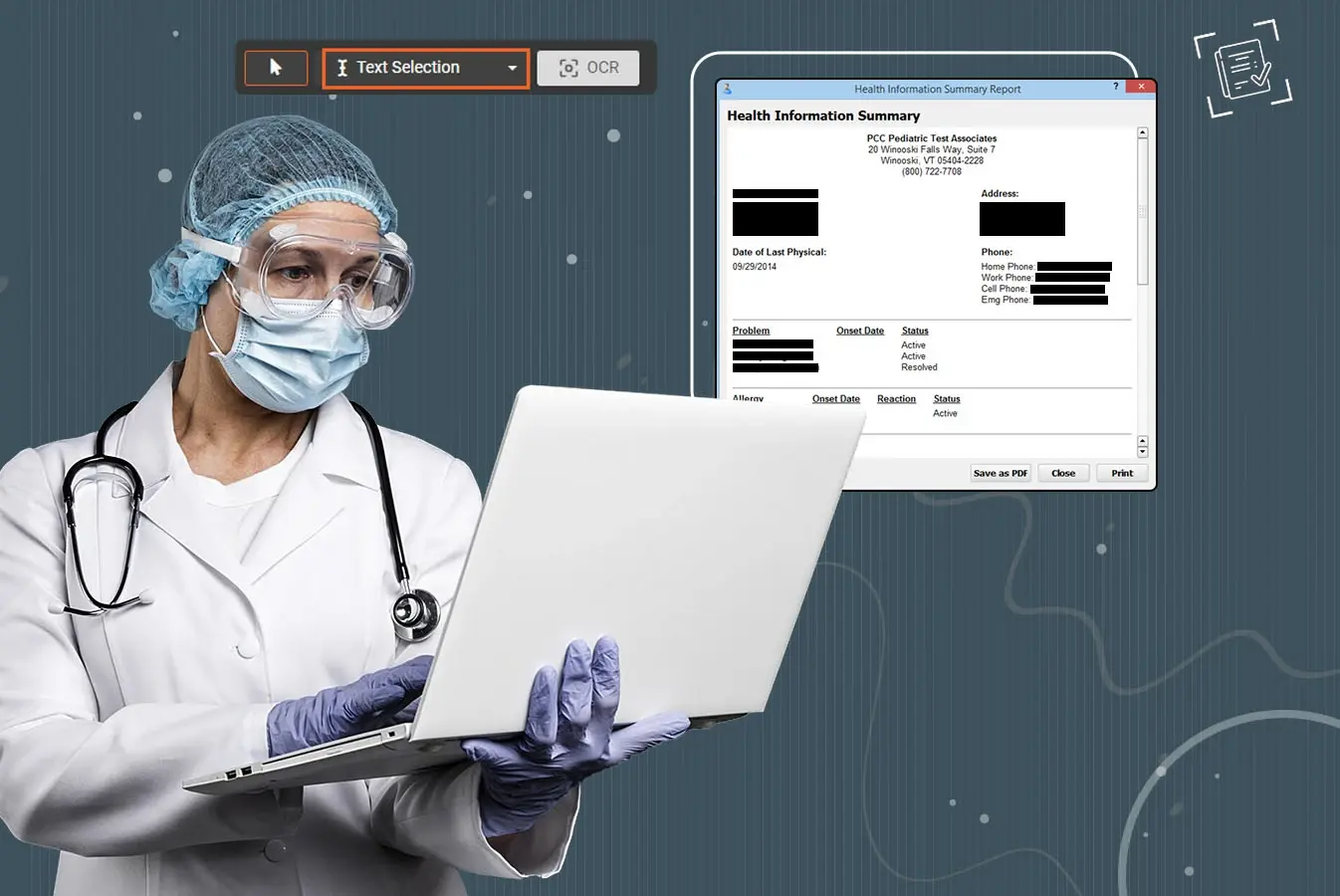Unlocking the Hidden Potential of Your Company's Knowledgebase with AI
by Rafey Iqbal Rahman, Last updated: October 8, 2024, Code:

Every day, your employees are spending hours looking for information they should be able to find in minutes. It’s frustrating, isn’t it? Your top performers, the ones who are supposed to be driving innovation and pushing your company forward, are instead stuck in a loop of endless searches through scattered files, emails, or outdated wikis. They’re navigating a chaotic heap of information just to find the necessary knowledge to perform their tasks. This inefficient process not only drains their productivity but also costs your business money—lots of it.
You’ve invested in creating a knowledge base, but without the right tools, its potential remains untapped. And the worst part? The longer you ignore this issue, the worse it becomes as more data piles up.
Information Silos and Knowledge Overload are Slowing You Down
Let’s dig deeper into why this is such a significant problem. For CIOs, Heads of IT, Knowledge Management Officers, and HR Managers alike, this constant struggle with knowledge overload and information silos is a nightmare. Employees waste precious time searching for vital information scattered across different platforms—whether that’s your CRM, internal knowledge base, email archives, or shared drives. Valuable insights and data are hidden in plain sight, and because of this:
- Projects are delayed, decisions are slowed down, and innovation is stifled.
- Collaboration suffers because people can’t easily find or share information.
- Employee morale dips as they spend more time on mundane tasks, losing the motivation to focus on value-adding activities.
- Customer service quality declines, as support teams can’t swiftly retrieve critical data or documentation needed to resolve issues.
It’s not just about having the information—it’s about finding and using it when it matters most.
Unlocking Hidden Potential with AI-Powered Knowledge Management
Imagine a world where your employees can retrieve the exact piece of information they need in seconds. Your knowledge base isn’t a static repository of outdated documents but a dynamic, AI-powered engine that understands and anticipates what your employees are looking for.
That’s where AI comes in.
AI can transform the way your company interacts with its knowledgebase by:
-
Making Enterprise Search Smarter: AI can break down information silos and understand the context behind a search query. No more irrelevant results. AI-driven systems can search across multiple platforms and formats, pulling the right content from emails, documents, databases, and wikis.
-
Automating Knowledge Categorization: Manual data tagging and organizing are labor-intensive and prone to error. AI automates this process, ensuring that all information is correctly indexed and categorized so it's easily retrievable.
-
Contextualizing Information: AI doesn’t just find data—it understands it. It can analyze context to deliver relevant insights, ensuring employees get the most pertinent information based on their queries.
-
Discovering Hidden Knowledge: Often, the most valuable information is hidden deep within your organization. AI can help uncover this “dark data”—the insights buried in massive unstructured datasets that would be impossible for humans to sift through manually.
-
Enhancing Employee Onboarding and Development: AI-powered knowledge management tools can quickly provide new hires with the resources they need to get up to speed. Similarly, employees looking to upskill can easily find relevant learning materials, ensuring continuous development.
Let’s break down how each of your key stakeholders can benefit from AI-driven knowledge management:
Making Data Work Smarter, Not Harder
As a CIO or Head of IT, you’re always searching for ways to optimize your tech stack, ensuring that every investment delivers a measurable return. AI-powered knowledge management is one such investment. It helps streamline internal processes and make better use of the data you’ve spent years collecting.
By leveraging AI, you can benefit in the following ways:
- Reduce IT workload: AI can handle the heavy lifting of knowledge categorization and search optimization, freeing up your IT team to focus on more strategic initiatives.
- Improve system performance: Integrating AI allows for faster data retrieval, improving overall system efficiency.
- Boost decision-making: AI uncovers valuable insights from your knowledge base, allowing you to make faster, more informed decisions.
In an age where data is the new oil, it’s not about collecting more—it’s about making the data you already have more accessible, actionable, and insightful.
Organizing Chaos with Precision
If you’re responsible for organizing and maintaining your company’s knowledge base, you’ve probably felt the strain of keeping up with an ever-growing pool of information. AI can revolutionize how you approach knowledge management by automating tedious tasks like tagging, categorization, and search optimization.
With AI-driven systems, you can:
- Automate content organization: AI can categorize information based on context, ensuring it’s always stored where it belongs and is easily accessible.
- Ensure content accuracy: AI tools can detect outdated or redundant information, alerting you when documents need to be updated or archived.
- Create a more intuitive search experience: AI enables search systems that understand the nuances of language, delivering the most relevant results based on the query’s context.
This allows you to focus on more strategic tasks rather than getting bogged down in manual processes.
Boosting Employee Engagement and Productivity
As an HR Manager or Head of People, you know that employee productivity and satisfaction are crucial to retention. But how can you ensure that employees have everything they need to succeed? With AI, you can provide them with an efficient and intuitive way to access the knowledge they need—fast.
AI helps by:
- Reducing time spent searching: Employees can find the exact information they need, whether it’s HR policies, company documentation, or learning resources.
- Improving onboarding: New hires can quickly find essential materials, helping them get up to speed faster.
- Supporting continuous learning: Employees seeking to upskill can easily find and access training materials, enabling them to grow without roadblocks.
When employees can access what they need efficiently, they become more engaged and productive, leading to better overall company performance.
The Future: AI as a Strategic Partner
The most successful companies are already using AI to unlock the hidden value within their knowledge bases. By adopting these AI-driven tools now, you won’t just keep up with the competition. You’ll be leading it.
So, how do you begin the journey toward unlocking your knowledge base's hidden potential with AI? Start by:
- Evaluating your current system: Identify the bottlenecks in your current knowledge management system.
- Understanding your AI needs: Do you need an AI solution for better search, categorization, or both? Understanding this will help you select the right tools.
- Partnering with AI vendors: Look for vendors specializing in AI-driven knowledge management solutions that integrate well with your existing systems.
- Rolling out AI in phases: Implement your AI solution in phases to ensure your team can adapt to the new technology and processes.
Ready to Unlock the Hidden Value in Your Knowledgebase?
Unlocking the hidden potential of your company's knowledge base with AI isn’t just about saving time or improving search capabilities—it's about transforming the way your company operates. AI-powered systems provide the intelligence you need to stay competitive, increase productivity, and foster innovation.
People Also Ask
How does AI improve enterprise search capabilities?
AI improves enterprise search by understanding the context behind a search query, delivering more relevant results, and searching across multiple data formats and platforms.
What are the main benefits of using AI for knowledge management?
AI automates data categorization, improves search relevance, uncovers hidden insights, and ensures employees can easily find the necessary information.
Can AI help with unstructured data?
Yes, AI excels at processing unstructured data, such as emails, reports, or images, and can categorize and index this data to make it more accessible.
How can AI boost employee productivity?
AI reduces the time employees spend searching for information, making it easier for them to access the needed data, leading to improved productivity.
How do I start integrating AI into my company’s knowledge management system?
Begin by assessing your current knowledge management system, identifying bottlenecks, and working with AI vendors to implement tailored solutions that fit your needs.
Is AI difficult to implement in a knowledge management system?
It depends on the complexity of your current system, but many AI solutions are designed to integrate seamlessly with existing platforms and can be rolled out in phases.
How can AI uncover hidden knowledge within a company?
AI can scan and analyze vast amounts of data, including unstructured information, to uncover insights and knowledge that may otherwise be buried or difficult to locate manually.
Can AI help with onboarding new employees?
Yes, AI can provide new hires with quick access to the resources they need to get up to speed, improving the efficiency of the onboarding process.
What impact does AI have on collaboration within teams?
AI improves collaboration by making information more accessible. It allows team members to share and retrieve knowledge quickly, leading to more effective teamwork.
Jump to
You May Also Like
These Related Stories

Why Pharma Companies Urgently Need Redaction Software

How Video Redaction Services are Helping Transportation Companies


No Comments Yet
Let us know what you think